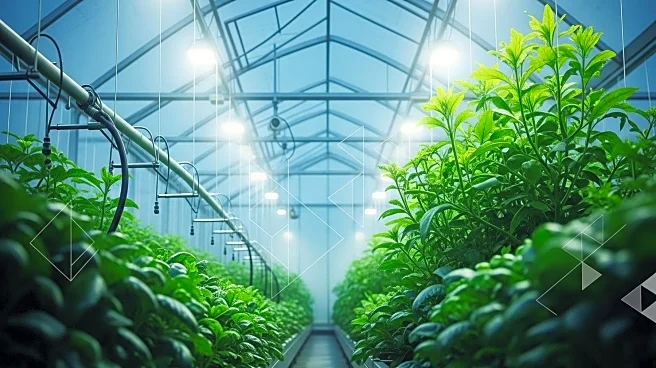What's Happening?
Project InnerSpace has launched the GeoFund program, aimed at pioneering economic growth through sustainable agriculture by utilizing geothermal energy. The first funded project, the Tapri Geothermal Cold Storage Project in Himachal Pradesh, India, is set to provide a geothermal-powered cold storage and crop drying facility. This initiative addresses the lack of traditional financing for geothermal projects, aiming to enhance local community resilience and economic growth. The project will help farmers preserve their produce, reduce waste, and increase revenue by providing reliable cold storage solutions.
Why It's Important?
The GeoFund program represents a significant step towards sustainable agriculture, leveraging geothermal energy to address post-harvest losses faced by farmers. By providing affordable and reliable cold storage, the initiative can help reduce food waste and improve food security. This model has the potential to be replicated globally, offering a sustainable solution to agricultural challenges. The program could lead to increased economic stability for farmers, creating jobs and boosting local economies. It also highlights the importance of innovative financing solutions in advancing sustainable technologies.
What's Next?
Project InnerSpace plans to open source project outcomes and data, facilitating the scaling of successful models to other regions facing similar challenges. Future funding rounds may support geothermal projects in Asia, Africa, and Central/South America. The success of the Tapri project could inspire further investment in geothermal energy, encouraging broader adoption of sustainable agricultural practices. Stakeholders, including governments and agricultural organizations, are likely to monitor the project's impact closely.
Beyond the Headlines
The initiative underscores the potential of geothermal energy as a sustainable resource, offering a model for integrating renewable energy into agriculture. It also highlights the role of philanthropy in overcoming financial barriers to innovative projects. Long-term, this approach could lead to shifts in agricultural practices, promoting environmental sustainability and resilience against climate change.









